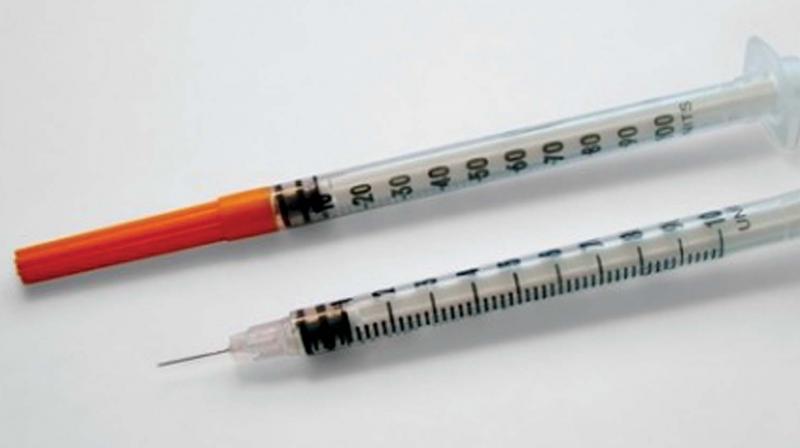Non-insulin diabetics needn't check sugar levels often: Doctors

Chennai: Self-monitoring of regular blood glucose levels at home by people with type 2 diabetes may have become a routine since it is an important part of diabetes management. But a recent study shows that self-monitoring of blood sugar levels for patients taking non-insulin medications is not necessary.
Diabetic patients complain that self-monitoring does not aid in glucose control and the cost of self-monitoring devices adds to their medical bill.
Anil Awasthi, a diabetic patient says, “I have been on oral medication for Type 2 diabetes and take self-monitoring tests using strips to ensure normal blood sugar levels. As we have to monitor sugar level at least twice a day, two strips per day accounts for around '1,000 monthly.”
Today, with over 69 million diabetes and 30 million pre-diabetes patients in India, diabetic patients shell out extra amounts to buy blood sugar monitoring devices and strips to test blood sugar daily. Now, doctors agree that taking prescribed medication is the key to treatment of Type 2 diabetes, without bearing the cost of self-monitoring devices.
“Diabetic patients with Type 2 who are on insulin need to self-monitor them necessarily, but those with Type 2 diabetes and are prescribed oral medication and diet control can take around 6-8 readings monthly, to keep a check on their blood sugar level,” said Dr V.Mohan, a senior diabetologist.
Doctors say that non-insulin patients can emphasise on diet control and exercises to keep blood sugar levels in control, without self-monitoring. Patients taking self-monitoring tests usually are the ones who fail to work on sugar control and thus self-monitoring turns futile.
“Type 2 diabetes is insulin-independent and comes with ageing. Patients taking tablets and on diet control can reduce it effects by exercising and diet-control without self-monitoring. To manage diabetes cost-effectively, patients should exercise regularly,” said Dr P. Vasanthamani, Dean, Kilpauk Medical College.
Don’t self-medicate, if you self-monitor
Anti-diabetic drugs for patients with Type 2 diabetes are reported to have adverse drug reactions if not taken in appropriate amounts.
Doctors also agree on this saying that assessment of anti-diabetic drugs and their use is the need of the hour.
Doctors say that people do not give proper significance to the diabetes treatment and tend to self-medicate as they self-monitor, and use of anti-diabetic drugs can lead to unconsciousness, eye damage, renal damage and even harm the brain.
“Instead of taking self-control methods of treatment like exercises and diet control, people rely on commonly used medicines such as Metformin and others. But usage of these medicines without prescription can be very harmful, which can lead to unconsciousness, nausea, lead to coma or permanent mental damage,” said Dr Narayanan Babu, Dean, Rajiv Gandhi Government General Hospital.
Prescription for diabetic patients should be changed every three months, as the blood sugar level state may change after continuous medication. In such cases anti-diabetic drugs can have adverse effects.
Doctor say that self-monitoring is not the end of the treatment; one has to follow the guidelines of the physicians to use the drugs, which cannot be deviated from the prescription. If any change is required in the dosage, it should be done only after a check-up by a diabetologist.

